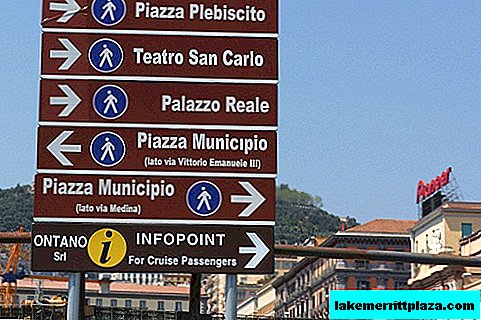Despite the efforts of the municipality, the owners of the house (XIV century) categorically refused to sell it for the museum. In the Middle Ages, this house was owned by the Counts of Nogarol, whose genealogy was a story reminiscent of the plot of Shakespeare's play. This gave reason to consider this place "Romeo's House".

House Romeo
The House of Romeo (Casa di Romeo) is a large medieval building on Via Arche Scaligeri in Verona.
The palace house of several buildings is surrounded by a battlement brick wall. The gothic flat facade, cut through by rows of different-sized windows, looks gloomy. Only a small tablet tells passers-by about the Shakespearean story allegedly related to the building.
We could easily skip the plate if it weren’t for the noisy sightseers who were aiming at it with cameras. An arched entrance is visible in the brick wall. To the left is a staircase, it leads to the upper portal and a balustrade decorated with lovely flower beds. Inside we are not invited.

House of Romeo (Casa di Romeo), photo globalNix
Tour guides say that representatives of the Monticoli clan (the prototype of Montecchi) built the Romeo house in the 13th century. It is only documented that in the 14th century the building was owned by Canalolo Nogarola. For centuries, the Gothic mansion changed its owners. World War II began, the abandoned house was completely dilapidated. After the war, the owners partially restored it.
The municipality of Verona has repeatedly offered owners to sell a house to the city for the Shakespeare Museum (as you know, the Verona house-museum of Juliet exists and successfully operates). The owners of the mansion rejected the deal. They also refused to allow tourists into the house.
We just have to take a picture of the inhospitable House of Romeo, marked with a commemorative plaque, and go further along the Via Arca Scaliger.

Shakespearean nameplate, photo by Elliott Brown

A sign near Romeo's house. photo jake9190
How to get there
Take buses 70, 71, 96, 97 to the stop P.zza Indipendenza, 4.








